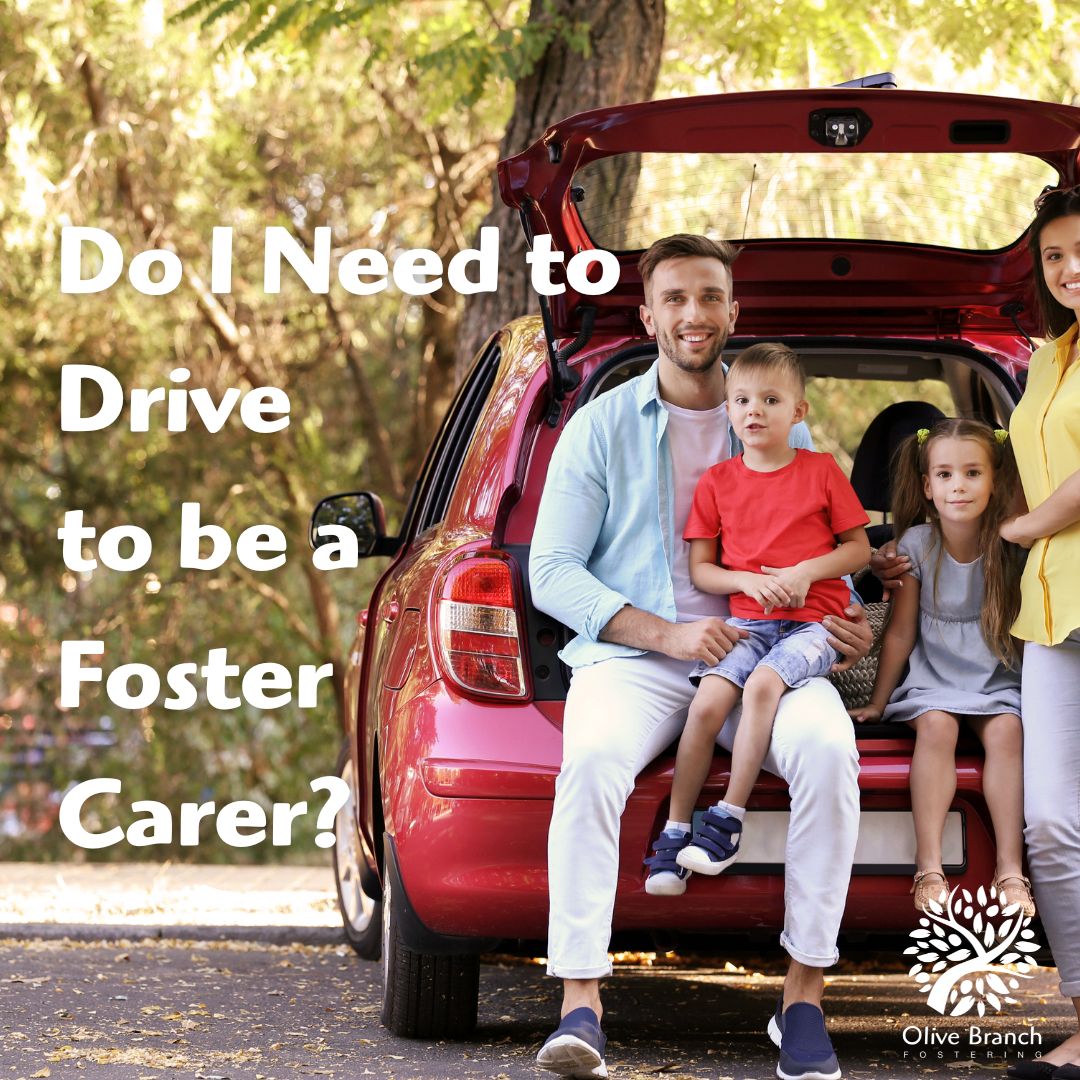Do I Need to Drive to be a Foster Carer?
Date published
01 September 2025

If you’re considering fostering, you may be wondering what’s expected of you and whether or not you meet the essential criteria. Here at Olive Branch, a question we’re often asked is, ‘Do I need to drive to be a foster carer?’
According to the National Travel Survey 2022, 75% of English citizens over the age of 17 hold a full UK driving licence, and around 78% of households own at least one car. However, that means there are still several million people across the UK who don’t drive.
Read on to find out whether or not driving is essential for fostering, and what to consider if you’re applying to foster without a driving licence.
If you want to foster as a non-driver, the fostering agency or local authority assessing you will want to understand your reasons for not driving.
If you simply prefer not to drive, then that’s fine. However, if there are underlying reasons preventing you from holding a licence, for example, criminal convictions or medical conditions, then these will need to be disclosed and explored as part of your fostering assessment.
The role of a foster carer involves travel. This includes regular trips, for example, school runs, medical appointments and meetings, but it may also involve travelling longer distances, for example, to attend contact with birth family, therapeutic interventions or specialist training.
Here are just a few of the travel responsibilities you’ll need to be able to meet as a foster carer:
Attending meetings with social workers and other professionals involved in a child’s care.
Taking children to medical appointments or therapeutic appointments (for example, counselling, physio, speech and language therapy).
Attending foster carer training.
Going to relevant support groups.
Taking children to nursery/school/college as appropriate, and also attending parents’ evenings, open days and meetings.
Contact time with a child’s birth parents or wider birth family (for example, sibling contact).
Extracurricular activities, such as music lessons or sports clubs.
While all of this may be possible without a car, it can sometimes prove a challenge. That’s why your fostering agency will want to know how you plan to get around as a foster carer who doesn’t drive.

If you don’t drive, it’s vital that you put alternative plans in place to demonstrate how you’ll get from place to place without a car.
Some foster carers without driving licences live in big cities with excellent transport links, and not driving simply isn’t an issue. If you live in close proximity to frequent, reliable, bus, train or tram services, you’ll be better placed to meet your responsibilities as a foster carer than someone who lives rurally and has to walk a considerable distance to catch the local bus that runs once an hour.
You should also consider what you’ll do if you need to get somewhere urgently, or outside of a public transport timetable. For example, what will you do if a foster child is unwell during the night, or you need to attend contact with birth family on a Bank Holiday when services are reduced? Do you have telephone numbers for local, reliable taxi companies, and do you have money set aside for this? Foster carers need to know that when taking a foster child in a taxi, they’ll be expected to use an appropriate car seat if required by law, and that children shouldn’t travel unaccompanied in taxis.

As we’ve demonstrated, driving isn’t a requirement to foster. However, holding a driving licence is certainly a desirable attribute as a potential foster carer. This is because it makes life so much easier, both for you as a carer and for the foster children who come to live with you.
Another common scenario is applying to foster as a couple, where one of you drives while the other is happy to use public transport. Or if both of you have a licence but share a car between you.
If you’ve been thinking of learning to drive, why not use your desire to foster as motivation to get started with lessons? You could also consider different types of fostering, such as fostering teenagers who are moving towards independence, or respite fostering, where reliance on public transport might not be as much of an issue.
Whatever you decide, your driving licence status is something that your social worker will discuss with you early on in the process, so the important to be honest about your current situation, and whether or not it’s likely to change in the near future (maybe you’re already taking driving lessons or saving for a car?) And you’ll be expected to share how you plan to meet your responsibilities as a foster carer who doesn’t drive.
If you’re considering fostering and have been wondering, ‘Do I need to drive to be a foster carer?’, we hope this blog has helped answer your question.
All across the North West, there are hundreds of children in need of safe, loving homes. So if you’re keen to foster and want to find out more about the process and what’s required of you, we’d love to hear from you.
Give us a call today on 01706 558910 or book a call back for a time that suits you.
News
01 September 2025